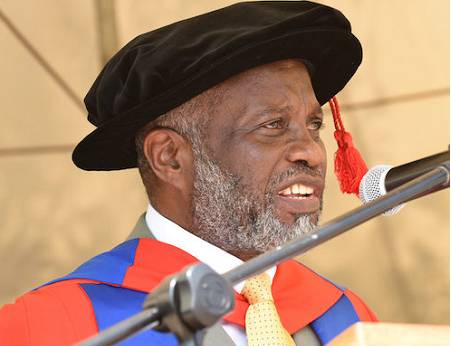Prof. Essuman believes that free SHS policy should prioritize skill development.
Professor Ato Essuman, Chairman of the West African Examinations Council (WAEC), has called for reforms in the country's secondary education policy to give young people the opportunity to acquire skills that will enable them to become national assets for development.
He claimed that the current Free Senior High School (SHS) policy was fraught with skill development challenges, teacher training and orientation difficulties, insufficient resources, and delays in the release of funds to schools.
Furthermore, Prof. Essuman stated that the budgetary allocation for the Free SHS was too "lofty," to the point of undermining basic education funding, the country's foundation, necessitating reform.
"The policy of making education free and available to all is a lofty goal, but it will be useless and wasteful if all it does is create opportunities to give young people access without providing them with the skills that will make them great assets for national development," he said.
"Reforming what is taught and how it is taught is critical; otherwise, the problems are likely to persist," Prof. Essuman said last Thursday evening at a forum organized by the Old Achimotan Association (OAA) in Accra.
The forum, dubbed "Achimota Speaks," addressed "The Governance, Management, and Financing of Secondary Education in Ghana."
It included a panel discussion in which various stakeholders shared their perspectives on secondary education management and financing.
Angel Agbe Carbonu, a former Global President of Ola Girls Old Students, Dr Eden Welbeck, Irene Sam, who represented the National Council of Parent Teachers Association (PTA), and Yaw Benneh-Amponsah, Managing Director of Merson Capital Ltd, who is also an old student, were among the five panelists.
Implementation in stages
Prof. Essuman stated that a phased implementation of the Free SHS policy would have been preferable, drawing key lessons from previous interventions such as the Capitation Grant and the Free, Compulsory Universal Basic Education. (FCUBE).
Regarding inadequate resources and delays in the release of funds to schools, the three-time Council of State Member said there was the need for the policy to have focused on the poor and vulnerable at its initial stages, if the phased implementation route had been chosen.
“The arguments about Free SHS focus on issues such as access and not enough about the contents and outcomes expected,” Prof. Essuman, who was also the Chief Director at the Ministry of Education, stated.
"Skills development, teacher orientation, training and development, and new approaches are less stressed in the discussion," he adds.
Angel Carbonu, President of the National Association of Graduate Teachers (NAGRAT), stated that all attention has been focused on SHS while ignoring public elementary schools.
"The most heartbreaking aspect is the basic schools." "All of our public elementary schools are in disrepair, and some ramshackle private schools are attracting more students than the public schools because trust in the public schools has faded," he said.
Dr Welbeck stressed the need for the government to review the governance structures of SHS to ensure equality and good quality education.
Mrs Sam of PTA urged the government to give parents, who are major stakeholders in the education sector, a voice.




No comments yet
Be the first to share your thoughts!